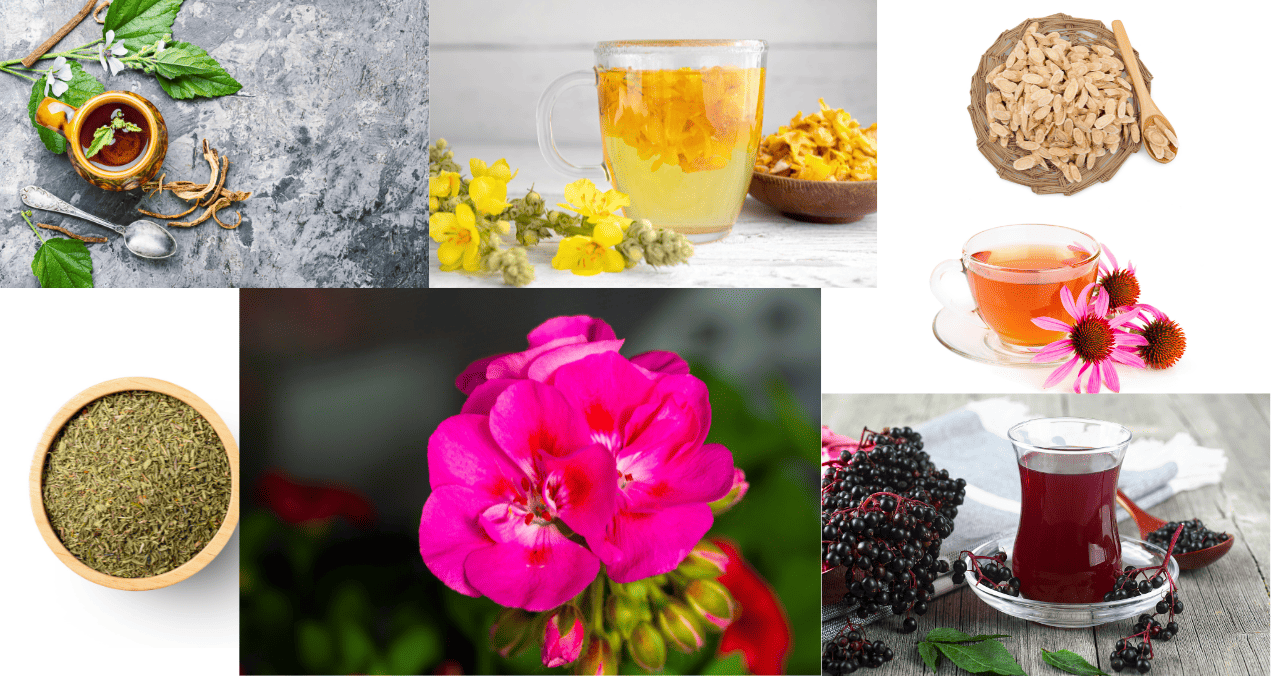Elderberry and 7 Effective Herbs to Relieve Colds and Flu

These herbs offer options, backed by tradition and science, to strengthen the immune system and combat the symptoms of these common infections throughout the New Year.
It is important to note that you should always consult a doctor or healthcare professional before starting herbal medicine treatment, especially if you are taking any other medications. Photo: Shutterstock.
As winter approaches, the fight against colds and flu intensifies, but nature provides us with valuable allies in the form of medicinal herbs. From echinacea to marshmallow, these plants provide natural relief. Here we present seven herbs that have proven effective against unpleasant winter symptoms.
Astragalus
This remedy acts as a prophylactic agent that enhances the function white blood cells and increased antibody levels. Astragalus root extracts are especially useful for preventing respiratory infections in people prone to colds and flu. It can be consumed as tea, capsules or tincture, but keep in mind that pregnant and breastfeeding women should avoid its use, as should people with autoimmune diseases.
Echinacea
Echinacea is a wildflower known for reducing the likelihood of catching a cold. It enhances the immune system’s response. Its benefits include increased antibodies, increased levels of interferon to combat virus and stimulation of leukocytes. Echinacea can be found in tea, tincture, or capsule form, but it is not recommended for people with tuberculosis, leukemia, diabetes, HIV, and other diseases.
Elder
Ripe elderberry is full Vitamin C and antioxidants, which help shorten the duration of cold and flu symptoms. Elderberry syrup also relieves nasal congestion and other allergic symptoms. It is advisable to opt for syrup or tablets and avoid eating unripe berries or products with other parts of the plant.
Marshmallow
Derived from the roots and leaves of the plant, marshmallow helps relieve irritation of mucous membranes, as in the case of a sore throat or cough. You can safely take this remedy as a tea or infusion as it does not require any special precautions.
Mullein
The grayish-green leaves and stems of mullein act as an expectorant and enveloping agent that relieves bronchitis And cough. It is prepared as an infusion of mullein leaves or flowers to soothe the throat. The seeds should be avoided as they are toxic.
Pelargonium
Having a long medicinal tradition in Africa, Pelargonium sidoides has been used to treat a variety of respiratory infections. It is found in extracts, tablets, and tinctures, but caution should be exercised if you experience stomach upset or take it. anticoagulants.
Thyme
This herbaceous aroma not only adds flavor to your dishes, but also relieves coughs and nasal congestion. Its antispasmodic, expectorant and antibacterial properties make it an ally against colds, flu and other diseases. breathing problems. You should make an infusion of thyme to reap its benefits, but it is important to avoid using it if you have hormonally sensitive conditions.
In conclusion, these natural herbs offer valuable, tradition-based strengthening options the immune system and combat winter symptoms. Additionally, it is important to consult with a doctor before starting new medications, especially if a person has any pre-existing medical conditions.
Source consulted here
